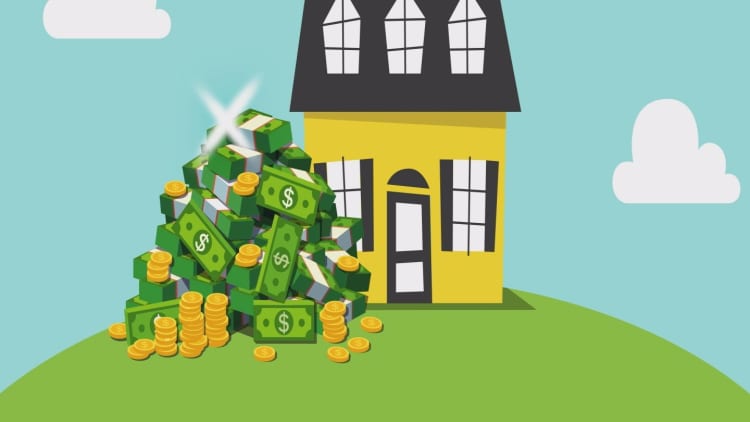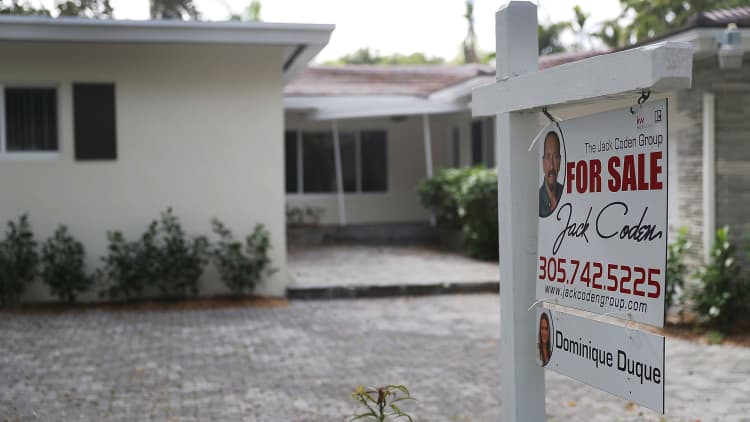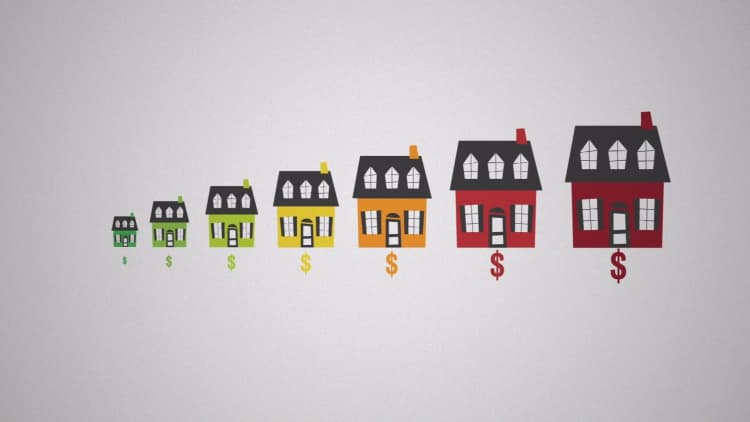Home prices have been rising steadily since the recession, but the gains are suddenly accelerating as spring demand heats up in an already highly lean and competitive market.
Prices surged 7 percent higher in March compared with a year ago, according to CoreLogic. That is the biggest gain since May 2014. All 50 states saw home values increase, and prices are now higher than they were at the peak of the last housing boom, although that does not account for inflation.

"High demand and limited supply have pushed home prices above where they were in early 2006," said Frank Nothaft, chief economist at CoreLogic. "New construction still lags historically normal levels, keeping upward pressure on prices."
The price gains are greatest in the nation's largest markets. Half of the nation's 50 largest markets are now considered overvalued, meaning home prices are at least 10 percent higher than the long-term, sustainable level.
Las Vegas, San Francisco, Denver and Los Angeles are all overvalued, as are Miami, Houston and Washington, D.C., according to CoreLogic.
Prices are seeing the biggest gains at the lower end of the market, where supply is leanest. Sales of homes priced under $100,000 fell more than 20 percent in March, according to the National Association of Realtors, not because there wasn't demand, but because there was not enough supply.

Entry-level buyers are being forced into bidding wars, and facing rising mortgage interest rates. The average rate on the 30-year fixed is at its highest level in more than four years and is not expected to fall back as it did last year.
Higher mortgage rates usually cool home prices, as buyers can't afford as much and sellers have to accommodate.The difference in today's market is that there is so much pent-up demand from the largest generation, and the economy and employment are improving. That dynamic could outweigh higher rates, although at some level there has to be a breaking point, especially for young buyers with less cushion in their wallets.
"Affordability continues to slip away from the average buyer. Lower-priced homes are appreciating much faster than higher-priced properties, making the affordability crisis even worse," said Frank Martell, president and CEO of CoreLogic.

While prices continue to be hot in California, Washington and Colorado, other states like Utah and Idaho are seeing double-digit gains, as workers move to areas where there is more supply. Consequently, they heat up prices in those locations, as well.
There is new data showing people are now leaving California due to sky-high home prices, and that is already cooling down some local markets in the state. Migration estimates compiled by realtor.com show 16 of California's most popular counties are losing residents.
The listing site is seeing a growing number of outbound property viewings, that is more searches for properties outside the state than inside the state. Last year also marked the first time outbound move requests outnumbered inbound to the state since Atlas Van Lines began tracking the metric in 2008.
WATCH: How to win a bidding war when buying a home



